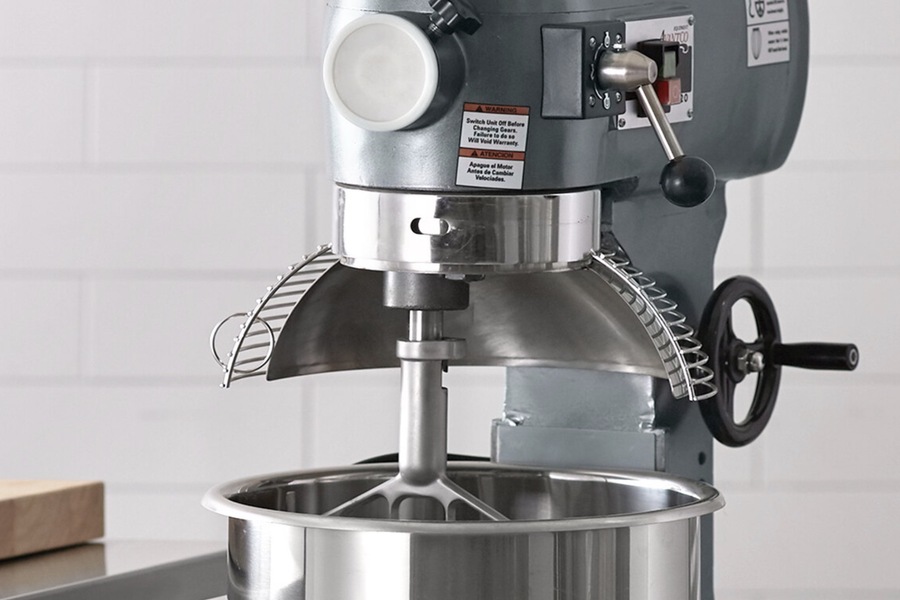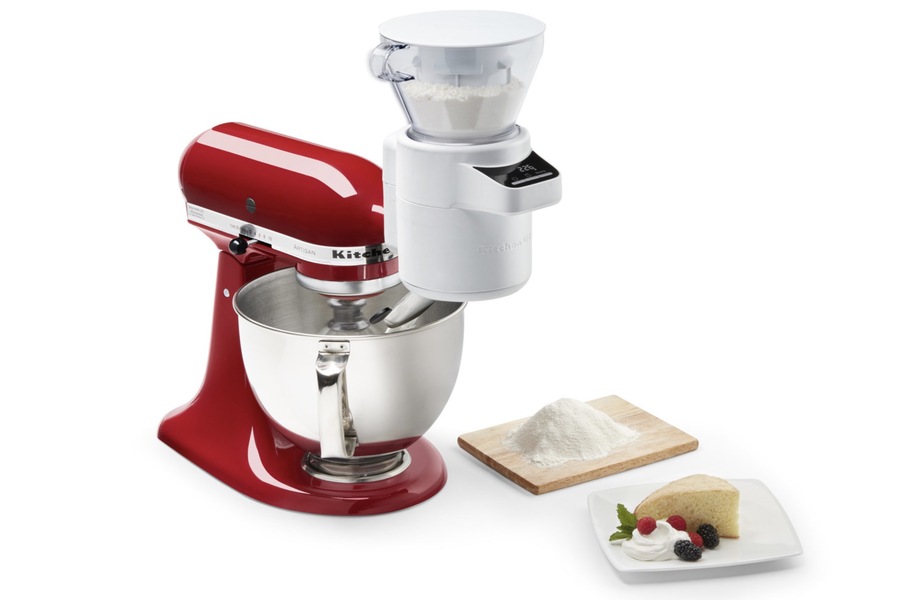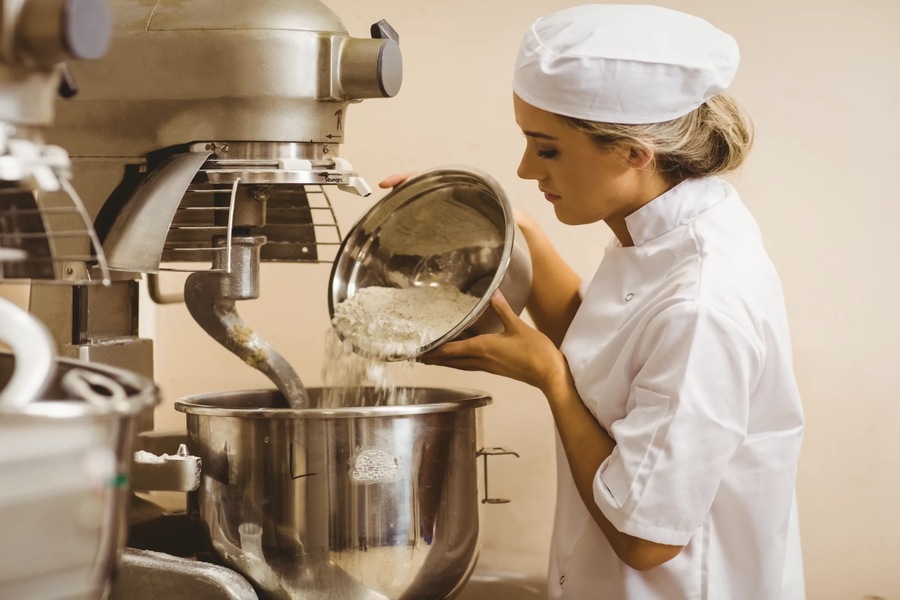The bakery industry has a rich and varied history, with its origins tracing back thousands of years. The first artisan bakery is believed to have been established in Ancient Egypt around 2600 BC, when bakers began to experiment with yeast, leading to the production of leavened bread. This ancient art of baking has evolved significantly over the millennia, adapting to cultural and technological changes.
In the modern global scenario, the bakery industry has seen exponential growth. According to a report by Grand View Research, the global bakery products market size was valued at AED 747.95 billion in 2020 and is expected to expand at a compound annual growth rate (CAGR) of 3.9% from 2021 to 2028. This growth is driven by the increasing demand for convenient, ready-to-eat products and the rising popularity of specialty and artisanal baked goods.
The first commercial bakery intended for large-scale production was established in Rome around 168 BC, revolutionizing the industry by introducing mass production techniques. Fast forward to the present day, the bakery industry in Dubai has mirrored global trends, experiencing robust growth. Dubai’s strategic location as a trade hub, coupled with its diverse expatriate population, has fostered a thriving bakery market. According to Euromonitor International, the UAE bakery products market is forecasted to reach AED 2.51 billion by 2025, driven by an increasing preference for Western-style baked goods and innovative product offerings.
Current Trends in the Bakery Industry in Dubai
Rise of Artisanal Bakeries
Artisanal bakeries have gained significant popularity in Dubai, reflecting a global trend towards handcrafted, high-quality baked goods. Consumers are increasingly seeking out unique, locally sourced products that offer a more authentic and flavorful experience compared to mass-produced items.
Demand for Healthy and Gluten-Free Products
With growing health consciousness among consumers, there is a rising demand for healthier bakery options. Gluten-free, organic, and low-sugar products are becoming mainstream as more people adopt dietary restrictions and preferences focused on wellness.
Popularity of Fusion Desserts
Dubai’s multicultural population has given rise to fusion desserts that blend traditional flavors from different cuisines. This trend has led to innovative creations that cater to diverse tastes, such as saffron-infused croissants and matcha-flavored cakes.
Increased Online Sales
The shift towards e-commerce has accelerated in Dubai’s bakery industry, with many businesses offering online ordering and delivery services. This trend has been further fueled by the COVID-19 pandemic, which has changed consumer purchasing behaviors.
Sustainability Initiatives
Environmental consciousness is influencing bakery operations, with many businesses adopting sustainable practices. This includes using eco-friendly packaging, reducing food waste, and sourcing ingredients from sustainable suppliers.
Necessity of a Bakery Mixer in Commercial Settings
Enhancing Bakery Operations
A bakery mixer machine is essential for streamlining operations, allowing bakers to produce large quantities of dough and batter efficiently.
Meeting Increasing Demands
As the bakery market continues to grow, commercial mixers enable businesses to scale up their production capacity to meet rising demands without compromising on quality.
Ensuring Consistency
Consistency in product quality is vital for customer satisfaction. A commercial mixer for bakery ensures uniform mixing, which leads to consistent texture and taste in every batch.
Time and Labor Efficiency
These mixers significantly reduce the time and labor required for mixing ingredients, allowing bakers to focus on other aspects of production and innovation.

Understanding Commercial Bakery Mixers
Commercial mixers are robust, high-capacity machines designed to mix dough, batter, and other ingredients on a large scale. They are integral to the operations of commercial bakeries, ensuring efficient and consistent production.
Key Features
- High Capacity: Capable of handling large volumes of ingredients.
- Durability: Built to withstand continuous, heavy-duty use.
- Versatility: Can be used for a variety of mixing tasks, from kneading dough to whipping cream.
Latest Trends
- Automation: An advanced bakery mixer machine with automated features is gaining popularity, allowing for precise control over mixing processes.
- Energy Efficiency: Modern mixers are designed to be more energy-efficient, reducing operational costs for bakeries.
- Compact Designs: Space-saving models are in demand, especially for smaller bakeries looking to optimize their workflow.
Types of Mixers for Bakery
Spiral Mixers
Overview: Spiral mixers feature a spiral-shaped dough hook that remains stationary while the bowl rotates. This design ensures thorough mixing of dough, particularly heavy dough.
Applications: Ideal for mixing dough for bread, pizza, and other yeast-based products.
Planetary Mixers
Overview: Named for the orbital motion of the agitator, which rotates around the bowl while spinning on its axis. This motion ensures comprehensive mixing.
Applications: Versatile and suitable for mixing, beating, whipping, and kneading various ingredients.
Stand Mixers
Overview: Traditional mixers with a fixed stand and removable bowl. They are commonly used in both domestic and commercial settings.
Applications: Suitable for general mixing, kneading, and whipping in small to medium batches.
Countertop Mixers
Overview: Smaller mixers are designed to sit on a countertop, which is ideal for small- to medium-sized bakeries.
Applications: Best for specific tasks like whipping cream, mixing batter, and preparing smaller batches.
The Benefits of Bakery Mixers for Commercial Operations
Efficiency and Productivity
- Increased Output: Commercial mixers allow bakeries to produce larger quantities of products in less time, increasing overall output and efficiency.
- Time-Saving: Automated mixing processes significantly reduce the time required for preparation, allowing bakers to focus on other critical tasks.
- Consistency and Quality: Uniform mixing ensures that each batch of products maintains the same high quality, which is essential for customer satisfaction.
Cost-Effectiveness:
- Labor Savings: By automating the mixing process, commercial mixers reduce the need for manual labor, resulting in significant cost savings.
- Energy Efficiency: Modern mixers are designed to be energy-efficient, reducing operational costs and environmental impact.
- Long-Term Investment: A high-quality bakery mixer machine is durable and reliable, providing a good return on investment over time.
Versatility and Flexibility:
- Multiple Applications: Commercial mixers can handle a wide range of tasks, from kneading dough to whipping cream, making them highly versatile.
- Adaptability to Recipes: These mixers can be adjusted to accommodate different recipes and mixing requirements, ensuring flexibility in production.
Enhancing Workflow and Operations:
- Streamlined Processes: Commerical mixers integrate seamlessly into bakery operations, streamlining processes and improving overall workflow.
- Reduction in Downtime: High-quality mixers are reliable and require minimal maintenance, reducing downtime and ensuring continuous production.
- Space Optimization: Compact and efficient designs help optimize space in the bakery, making it easier to manage operations.

ROI and Cost Considerations
Initial Investment vs. Long-term Savings
While commercial mixers require a significant initial investment, the long-term savings in labor and operational costs make them a cost-effective choice for bakeries.
Energy Efficiency
Modern mixers are designed to be energy-efficient, reducing utility bills and contributing to sustainability goals. This efficiency translates into significant cost savings over time.
Maintenance and Durability
Investing in heavy-duty mixers for bakeries reduces maintenance costs and ensures longevity, further enhancing the return on investment.
Scalability
Commercial mixers support scalability, allowing bakeries to expand their operations and increase production capacity as demand grows. This scalability ensures that the investment continues to provide value as the business grows.
Conclusion
In conclusion, the bakery industry has evolved significantly from its artisan roots to become a dynamic and rapidly growing sector. In Dubai, the industry is thriving, driven by trends such as the rise of artisanal bakeries, the demand for healthy products, and the popularity of fusion desserts. A mixer for bakery plays a crucial role in this growth, enhancing efficiency, productivity, and consistency in bakery operations. By investing in commercial mixers, bakeries can meet increasing demands, streamline processes, and achieve long-term cost savings. As the industry continues to evolve, commercial mixers will remain an indispensable tool for bakeries looking to expand and thrive in a competitive market.

Я отмечен наградами писатель-фрилансер, специализирующийся на финансовых темах. Я имею в виду более чем десятилетний опыт работы, о котором упоминалось в The Wall Street Journal.
